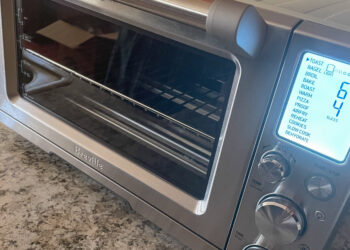By Joseph T. O’Connor Explore Big Sky Senior Editor
BIG SKY – Quick and to the point, the Feb. 13 Big Sky Resort Tax Board town hall meeting ended after an hour and a half. A second meeting will take place on March 13.
This first meeting focused on three main components: Clarifying a list of items subject to resort tax; outlining funding application requirements; and explaining the board’s ability to fund long-term, larger projects.
Jamey Kabisch, board chairman, opened the presentation by stepping offstage at the Warren Miller Performing Arts Center, the location for both town hall meetings, and welcoming the approximately 40 attendees.
“You’ve all seen the ‘Better Together’ buttons around town,” said Kabisch, one of five RTB members present at the meeting. “And I think we’re starting to see this come into fruition.”
The slogan, “Better Together,” was introduced in 2013 by Buz Davis, the facilitator for the board’s summer 2012 strategic planning sessions and was, according to Kabisch, an effort to bring the community closer in the spirit of collaboration. It’s been the board’s mantra ever since.
RTB secretary Ginna Hermann then outlined what the board expects to see from organizations seeking resort tax funding for 2014-2015 projects. Applications are due April 14; the RTB will hold a Q-and-A session on May 14; and appropriations will be announced at a meeting on June 11.
Following a brief public comment period, the board delved into its proposed amendments to Ordinance 98-01, a law which determines what exactly is a luxury item – and therefore taxable – and what isn’t.
One of a handful of areas in Montana with such a tax, Big Sky collects a 3 percent tax on all “luxury” goods and services. Among them are all clothing, sporting goods, prepared and served food, recreational instruction, entertainment, spa services and alcoholic beverages.
This specific ordinance currently refers to both taxable items and those that are exempt from the tax, called “necessities of life” in Section 10. The amendment, Kabsich said, is an effort to clean up the ordinance and to make it more transparent and straightforward.
Montana law requires the RTB to hold two public readings before finalizing the amendment. The first reading was given at the Feb. 13 town hall meeting, and the second will be during the board’s March 12 monthly meeting.
Finally, the board addressed the ways in which it can now deal with funding larger and more expensive projects: a sinking fund and bonding ability.
The 2013 state legislature granted bonding authority to the RTB, and board vice chairman Mike Scholz says this new ability could allow the board to pay for projects that might otherwise deplete resort tax funding.
“The purpose is to have it as a tool in our toolbox [to use] if someone should ever have a project that, to do in one year, would cripple our ability to fund other projects,” he said. The board’s bond payments cannot exceed 25 percent of the average of the last five years of resort tax collections.
The RTB also started a sinking fund for potentially large projects in 2013, placing aside $280,000 of its annual collections. Scholz says that money – essentially what’s left over after each year’s allocations, if anything – can be used for bigger projects, such as a new fire truck or another large expenditure, pending community approval.
Scholz pointed out the sinking fund should not be confused with the board’s emergency fund, which currently has a balance of $100,000. That fund can be used at any time for a community emergency, whereas the sinking fund can only be used during resort tax allocations.
While the first town hall meeting was admittedly a little dry, Kabisch said, it was nonetheless important. The second meeting, slated for March 13, promises to be more involved. “I think the next one will be really interesting to hear,” he said.
The March 13 town hall meeting docket includes updates on the community housing development plan, the recreation center feasibility study and Visit Big Sky’s marketing strategy.
The Big Sky Resort Tax Board consists of Jamey Kabisch, Mike Scholz, Ginna Hermann, Jeff Strickler and Heather Budd, who was elected last November.










